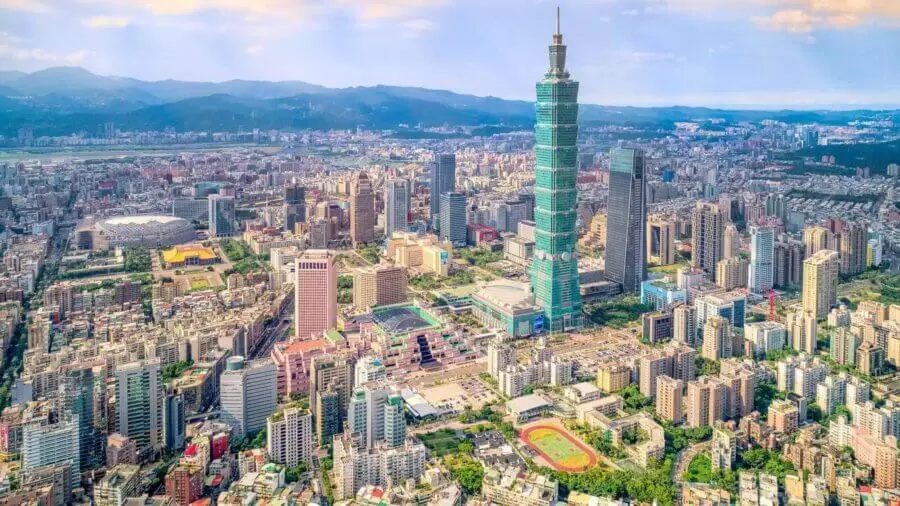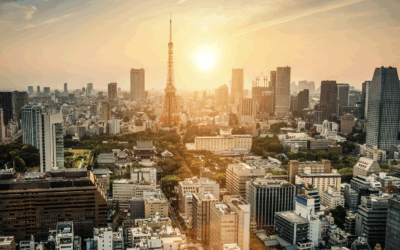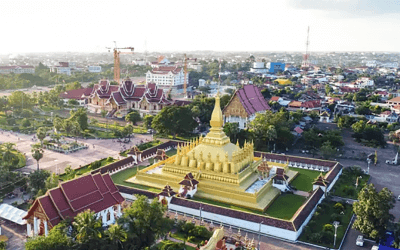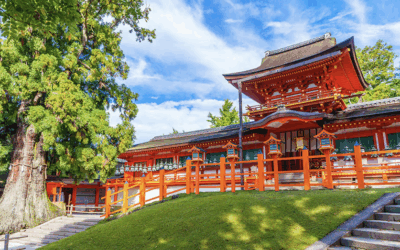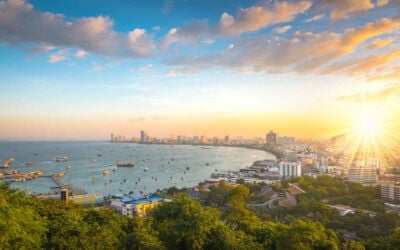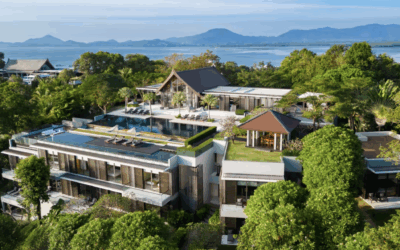Last updated February 20th, 2025.
To be frank,l buying property in Taiwan isn’t a good way to make returns at all. Taipei real estate prices are astronomically expensive.
Regardless, we’ll cover the property market in Taipei and elsewhere in Taiwan. Hopefully it serves as a solid example of somewhere you shouldn’t invest.
We already wrote about the most expensive places in Asia for buying real estate along with the cheapest ones.
Criteria like those are fine if you merely want to know which countries are within your price range. You almost certainly have some sort of investment budget whether it’s large or small.
Judging real estate markets by their affordability (or lack thereof) doesn’t tell you anything about their potential for return though. As investors, we’re much more interested in overall value – not simply a price tag.
For example, Hong Kong has ranked among the priciest markets on the planet for more than a decade, yet apartment values keep increasing nonetheless.
Likewise, Cairo is one of the least expensive cities. Yet massive amounts of oversupply in the suburbs is causing stagnant prices and a weak outlook. It’s a long distance away from Taipei but shares the same problem.
Of course, we’re looking at Taiwan today. There is very little profit left in the island’s real estate sector despite boasting a fairly strong economy in general.
Property in Taiwan is a Bad Investment
Taiwan does have many positive aspects that could be attractive to foreign investors… at least on paper.
Besides Macau, it’s the sole territory in the entire Chinese sphere of influence where foreigners can own freehold property. Doing business in Taiwan is easier compared to most places in the region too.
With all that said, real estate prices are completely out of touch with reality. Buying property in Taipei costs around US$7,000 per square meter (US$650 per square foot).
That means a rather modest 100sqm, two-bedroom house or apartment for sale in Taipei will set you back US$700,000.
The average Taiwanese citizen makes just over US$1,500 a month though. In other words, you would have to work for almost 40 years to afford a small apartment!
Not only that, but rental yields in Taipei are absolutely abysmal at about 2%.
That’s the lowest of all countries in Asia, and likely the housing market’s reaction to local Taiwanese not being able to actually afford property in Taiwan.
Quite frankly, rental prices must be low… or else everyone would be homeless.
Hong Kong and Singapore have managed to keep their expensive real estate values despite similarly low-yields and unaffordability to locals.
Yet they’re also both major global financial centers, are highly developed, and have a scarcity of land that Taiwan’s housing market doesn’t.
Buyers from mainland China are propping up prices in Taipei. However, with Beijing’s preventing their citizens from investing offshore, severely limiting Taiwan of its key growth factor, the situation is dire.
For all these reasons, Taiwan’s property market is practically begging for a correction. Chinese investors from the mainland won’t continue supporting demand much longer with their own economy now struggling.
You probably shouldn’t buy a house, apartment, mansion, or any other type of property in Taiwan.
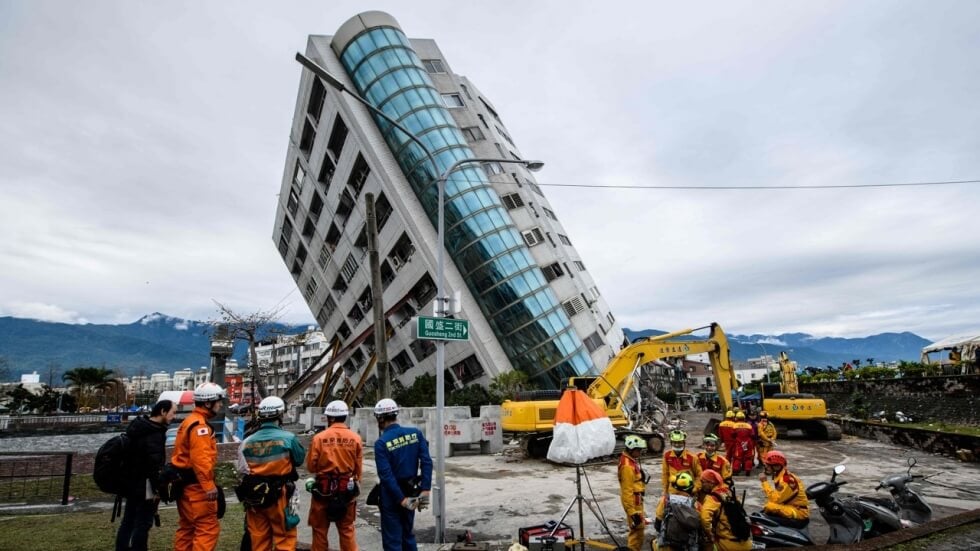
Taiwan is prone to natural disasters such as earthquakes and flooding. By comparison, it makes Southeast Asia looks safe.
Don’t Invest in Taipei Property: Consider This Instead
We don’t want to be the bearers of bad news if you were thinking about buying real estate in Taiwan. Here are a few alternatives for your consideration.
Malaysia’s urban areas are growing at a notably quicker pace than Taipei or Kaohsiung, and it’s at roughly the same stage of economic development.
Furthermore, it’s practically the only country in Southeast Asia where foreigners can own land rather than just apartment units. You can buy anything from a condo unit to a huge mansion.
Prices in Malaysia’s capital city of Kuala Lumpur are a mere fraction of Taipei’s. You can find real estate costing below US$4,000 per square meter.
Meanwhile, you might want to consider investing frontier markets if your primary goal is to make returns.
Cambodia ranks among Asia’s least expensive places to buy luxury apartments, or really any type of home for that matter.
You might consider it as a higher-growth, far cheaper alternative to buying a property in Taiwan.
While Cambodia is one of the region’s poorest countries, its strong GDP growth in excess of 7% annually, reasonable prices, and ongoing demographic boom means you’ll find a lot investment potential.
On the most expensive end of the cost-spectrum, Singapore is one of the world’s priciest cities to own property. Yet it’s barely more expensive than housing in Taipei.
Singapore is also Asia’s top financial hub, has less available land supply, and enjoys better living standards than Taiwan does.
The city’s rental yields, economic growth, and potential for capital appreciation in each of these countries are superior compared to buying an apartment in Taipei, Taichung, or anywhere else in Taiwan.
In fact, all three of the countries mentioned further above in this section will provide you with better investment potential than Taiwan. Not just with regards to appreciation and rental yields, but also natural disaster and geopolitical risk.
Taiwan is a bustling, dynamic island with many opportunities outside of its real estate sector. Still, you should consider your options carefully before “investing” somewhere just because you personally like the place.
Want to learn about other markets you should probably avoid? Taiwan isn’t the only place in the region where you shouldn’t buy a house.
You might be interested in our article about the four worst countries for investors in Asia.
FAQs: Taiwan Real Estate
How Much Does Property in Taiwan Cost?
Property values in Taipei are among the highest in Asia when compared to the average local salary.
Meanwhile, a two-bedroom apartment costs about US$700,000 while an average Taiwanese citizen makes barely US$1,200 monthly. That means saving up for almost 50 years to afford a home in the capital.
Real estate prices in Taiwan are completely out of touch with economic reality. Despite Taiwan's overall solid economy, its property market is perhaps the most overvalued in Asia.
Can Foreigners Buy Property in Taiwan?
Yes, Taiwan has very few restrictions on foreign property ownership, making it easy for foreigners to purchase land or houses there.
However, unlike countries such as Malaysia and South Korea which offer some type of investor residency to foreign property buyers, owning real estate in Taiwan does not automatically grant you the right to live there as a foreigner.
You essentially must go through normal immigration channels to obtain permanent residence in Taiwan separate from a property purchase.
How High Are Rental Yields in Taipei?
Rental yields in Taipei are extremely low, hovering around 1.5% on average which is below the rate of inflation. This makes them some of the lowest in the world.
You could generate higher returns through a simple bank deposit while maintaining more liquidity compared to tying up funds in an overpriced Taipei property with abysmal rental income. The combination of high prices and low yields makes Taipei real estate a very unattractive investment.
Can Foreigners Own Land in Taiwan?
Yes, unless you're a citizen or company from mainland China. Taiwan allows foreigners to own land with very few limitations. This sets Taiwan apart from nearby countries in Asia where foreigners cannot own freehold property under any circumstances.
However, just because you can buy land in Taiwan as a foreigner doesn't necessarily mean it's a good investment. Property prices are highly inflated while yields remain low, so there are likely much better places to invest in Asia from a financial perspective.
What Are the Risks of Buying Property in Taiwan?
There are two main reasons why investing in Taiwan is ill-advised, despite the ease of foreign property ownership. First, real estate prices are completely disconnected from the economic reality of local wages. Buying a home in Taipei takes the average citizen 50 years of saving, indicating a massive bubble.
Second, Taiwan faces demographic headwinds as its population ages and urbanization reaches capacity, limiting growth potential. Many superior investment opportunities exist in other Asian countries with better fundamentals. As the saying goes, "just because you can doesn't mean you should" when it comes to buying Taiwanese real estate.

